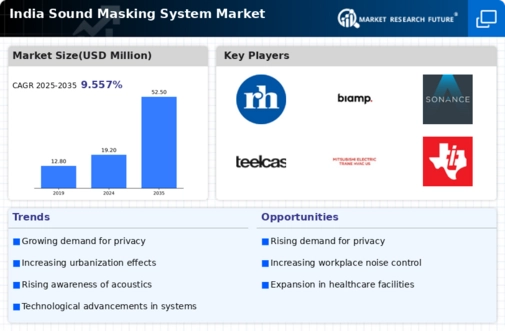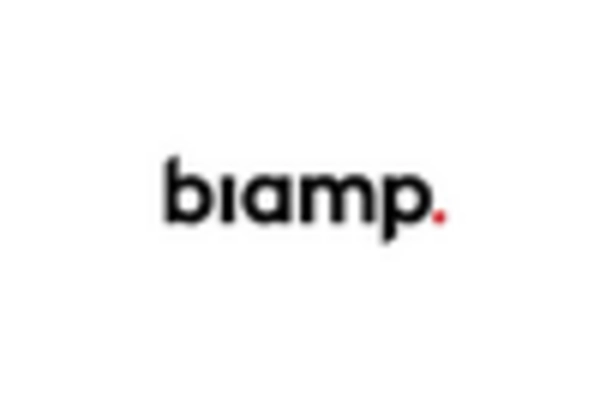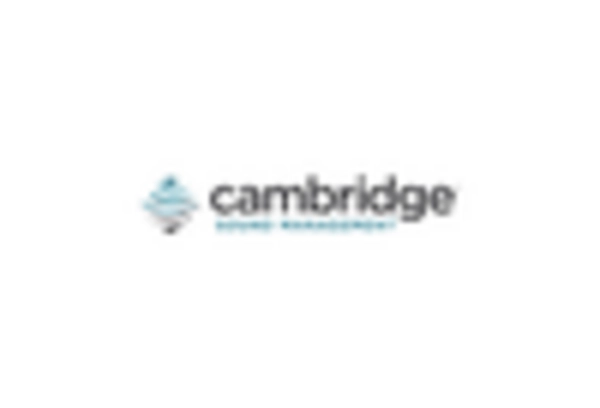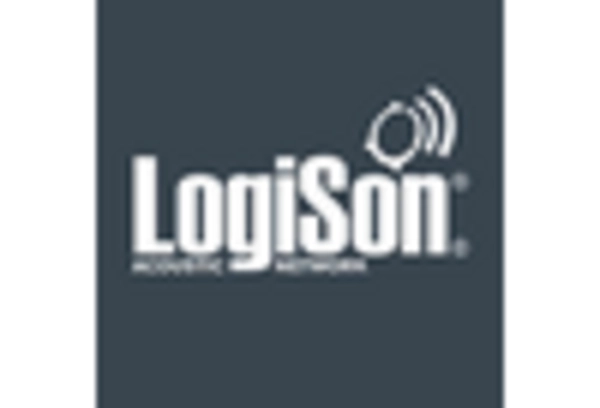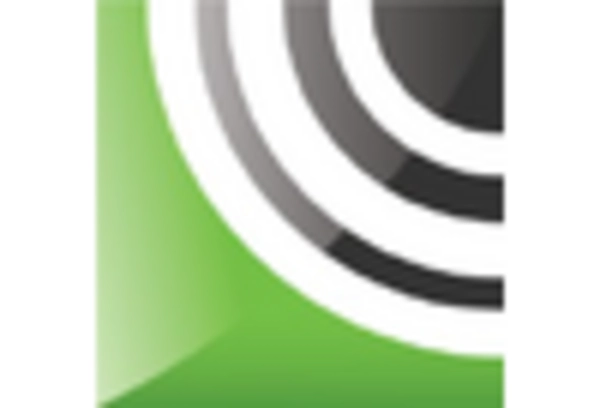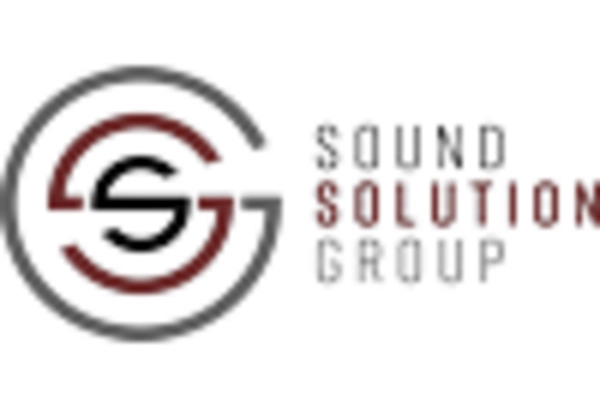Growth of the IT and BPO Sectors
The expansion of the IT and BPO sectors in India is a critical driver for the sound masking-system market. With the increasing number of call centers and IT hubs, there is a heightened need for effective sound management solutions to ensure confidentiality and minimize distractions. The sound masking-system market will see substantial growth as these sectors prioritize creating quiet and focused workspaces. Reports indicate that the IT and BPO industries contribute significantly to India's GDP, and as they continue to flourish, the demand for sound masking systems is expected to rise correspondingly, potentially increasing market revenues by over 15% in the coming years.
Rising Awareness of Mental Health
There is a growing awareness of mental health and well-being in India, which is influencing the sound masking-system market. Organizations are beginning to understand the impact of noise on employee mental health and overall productivity. As a result, many companies are exploring sound masking solutions as a way to create a more serene work environment. This trend is likely to drive demand for sound masking systems, as businesses seek to promote mental well-being among their employees. The sound masking-system market may see a significant uptick in adoption rates, with estimates suggesting a potential growth of 12% in the next few years as companies prioritize mental health initiatives.
Shift Towards Open Office Designs
The trend towards open office designs in India is reshaping the sound masking-system market. While open layouts promote collaboration, they also introduce challenges related to noise and privacy. Organizations are increasingly recognizing the need for sound masking systems to mitigate these issues. By implementing such systems, companies can create a more balanced acoustic environment that fosters both teamwork and individual focus. This shift is likely to drive market growth, as businesses invest in sound masking solutions to enhance employee satisfaction and productivity. The sound masking-system market is poised to capitalize on this trend, with projections indicating a potential increase in market size by 20% over the next few years.
Rising Demand for Acoustic Solutions
The sound masking-system market in India is experiencing a notable surge in demand for acoustic solutions, driven by the increasing awareness of noise pollution and its adverse effects on productivity. As urbanization accelerates, more businesses are recognizing the importance of creating conducive work environments. According to recent data, the market for acoustic solutions is projected to grow at a CAGR of approximately 8% over the next five years. This growth is largely attributed to the rising number of corporate offices and commercial spaces that prioritize sound management. Consequently, the sound masking-system market is likely to benefit from this trend, as organizations seek to enhance employee focus and reduce distractions in open office layouts.
Government Initiatives for Noise Control
In India, government initiatives aimed at noise control and environmental regulations are significantly influencing the sound masking-system market. The government has implemented various policies to mitigate noise pollution, particularly in urban areas. These regulations encourage businesses to adopt sound masking technologies as a means to comply with noise standards. For instance, the Ministry of Environment has set guidelines that promote the use of soundproofing and masking systems in commercial buildings. This regulatory framework is expected to propel the sound masking-system market, as companies invest in solutions that not only meet compliance but also enhance the overall acoustic environment.


